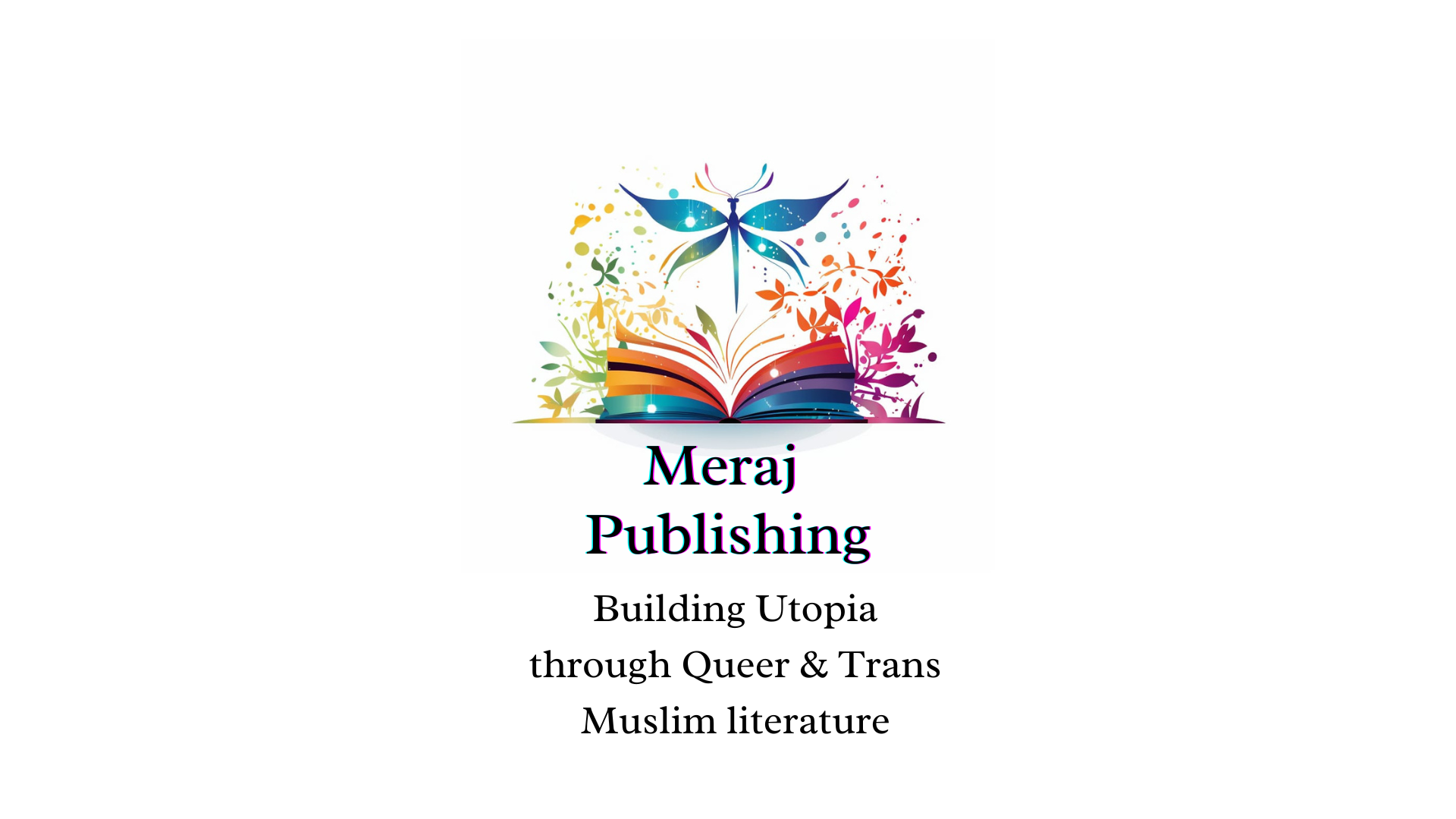

Meraj Publishing is a Trans and Queer Muslim publishing house that centers TQM voices from the global majority. Recognizing the vast inequities in the publishing industry, we aim to enable TQM individuals from the global majority to fully own our stories. Meraj prioritizes stories that focus on building utopia, hope, love, spirituality, and belonging. Meraj Publishing is entirely run and operated by TQM global majority.
Our Publications
Blood Orange
"Blood Orange" is a highly emotional, important and timely poetry collection by Mx. Yaffa (They/She), a trans Muslim displaced Indigenous Palestinian. Their writings probe the yearning for home, belonging, mental health, queerness, transness, and other dimensions of marginalization while nurturing dreams of utopia against the background of ongoing displacement and genocide of indigenous Palestinians.
The collection came quickly and relentlessly, drawn from the depths of the author's soul during a movement for a free Palestine and aligned with a solar eclipse. It beckons readers to re-evaluate what is perceived as immutable and to imagine pathways toward Utopia.
"Blood Orange"- the title an homage to the Yaffa Oranges (which were appropriated first by the British and subsequently by Israel) refers to the author themselves, their homeland and blood spilled in the name of settler colonialism.
This highly charged and cathartic body of work confronts the anguish and loss inflicted by genocide but also embraces a vision of a world free of it. The poems within "Blood Orange" were a means of working through and processing the grief caused by recent events and serve as an act of protest and defiance against settler colonialism as a whole.
Inara: Light to Utopia
"Inara: Light of Utopia" is a groundbreaking anthology that unites the voices of queer and trans Palestinians from around the world, each contributing to a vibrant mosaic set in a liberated Falasteen. This collection melds poetry, short stories, essays, visual art, and photography into a singular vision of freedom, love, and belonging. Within its pages lies a reimagined world, where the streets of historic cities resonate with the joyous laughter of those long silenced. "Inara" is not just a book; it's a beacon of hope, a celebration of identity, and a defiant cry for freedom. It invites readers into a utopia crafted from dreams of liberation, showcasing the resilience and beauty of the Palestinian queer and trans community. Join us in exploring a Falasteen reborn, where every voice sings of a future unbound.
Desecrated Poppies
Currently, there are 557 anti-trans bills across 42 states, along with 45 national bills aiming to block trans people from any and all human rights. Additionally, there are 293 anti-Palestinian bills. These bills share many commonalities; they impact far more people than just the targeted identities listed on them and are crafted by the same individuals. They collectively propel us towards fascism. The same trend can be observed with cop cities, anti-abortion bills, and numerous other initiatives propelled forward by white Christian nationalists.
"Desecrated Poppies," written during the eclipse in April 2024 and in anticipation of the November 2024 elections, delves into the intersections of anti-trans and anti-Palestine politics, illustrating how they intertwine with fascism. Through essays and poetry, Yaffa navigates their experiences of these seemingly conflicting identities, both of which are weaponized to advance fascism. "Desecrated Poppies" also explores antidotes to fascism, with a particular focus on cultural work and the imperative to prioritize the most marginalized among us. A world beyond fascism exists, and we hold the pathway forward.
Whispers Beneath the Orange Grove
Whispers Beneath the Orange Grove is an essay collection where Yaffa blends personal narratives with strategies to build a liberated world grounded in mutual aid, community care, and collectivism. Rooted in Indigenous Palestinian culture and guided by love, spirituality, and belonging, Yaffa offers a compelling vision and practical tools for organizers and mobilizers—both new and experienced—dedicated to creating a just world.
Reflecting on experiences like being unhoused and navigating psychosis, Yaffa emphasizes survival and resistance strategies. Drawing on lessons from post-9/11, the collection addresses the current rise of fascism and presents tools like community care as a practice to strengthen collective bonds. Critically engaging with settler colonialism, the essays focus on the most marginalized, offering a roadmap for collective liberation and a more just future.
Living to 99: Collectivism, Non-Attachment, & Liberation
Living to 99 is a love letter to those of us at the margins of spirituality. Spirituality has existed beyond time and space. We are meant to be connected, yet our connection is often demonized, dehumanized, and punished along the way. In Living to 99, we explore concepts of spirituality—what it means to be connected to one another, to collectivism, community, care, and stewarding the land. Ultimately, we move toward fully claiming our purpose as humans.
Through reflections on the 99 Names of Allah, we examine what it means to be human, to organize, and to strive for collective liberation. Utilizing physical, somatic, emotional, and spiritual pathways for healing and growth—grounded in collectivism and non-attachment— Living to 99 envisions spiritual connection between the world we currently inhabit and the utopia we are collectively yet to liberate.
Sage
Sage is a poetry collection that acknowledges all transphobia is systemic but the pain of everyday interpersonal violence is still felt in our bones. A collection that highlights challenges and joy within interpersonal relationships from the perspective of a queer and trans Palestinian living at the margins of displacement, disability, immigration & ongoing genocide.
Sage is a beacon of light, shedding light to wounds that have festered and rotted, and finding the paths forward as fascism claims more of who we are.






